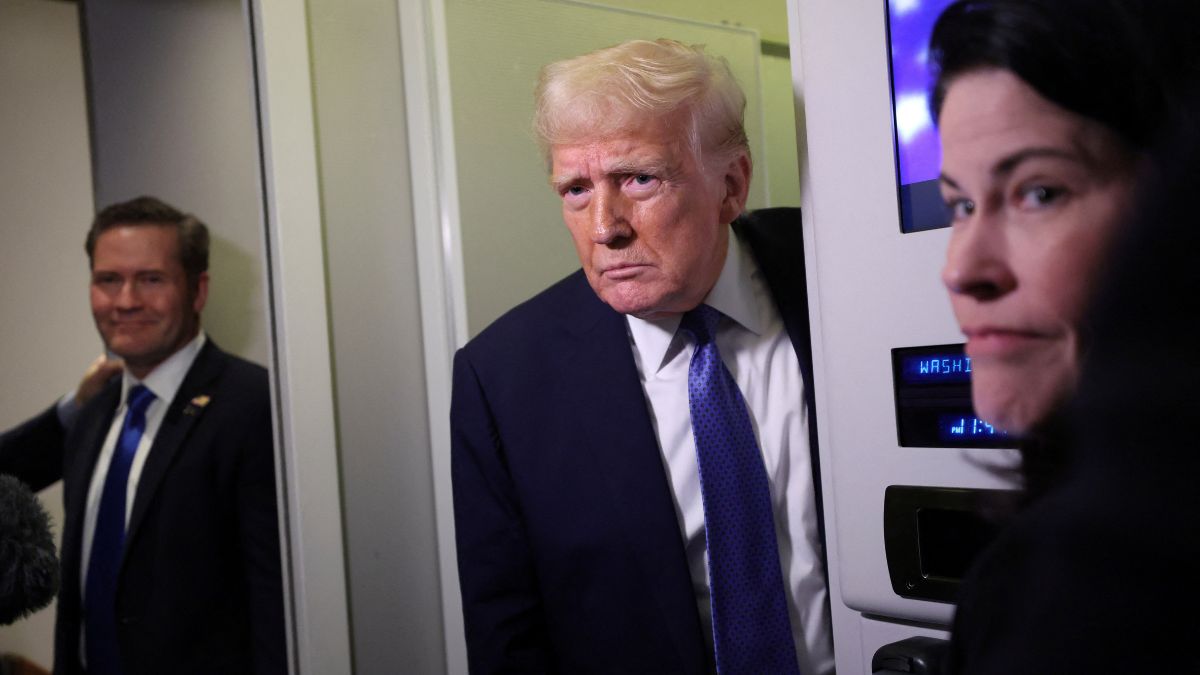A US federal court has temporarily blocked United States President Donald Trump from using the Alien Enemies Act of 1798 to deport alleged members of a Venezuelan gang.
The move has sparked legal and political controversy, as the Trump administration argues that the US is facing an “invasion” justifying the use of a wartime-era law.
What is the Alien Enemies Act?
The Alien Enemies Act of 1798 is one of the oldest US laws concerning national security and immigration. It was originally enacted alongside other Alien and Sedition Acts during heightened tensions between the US and France.
The law grants the president the authority to detain or deport nationals of foreign nations deemed hostile, without the need for court proceedings.
Historically, the law has been used only during periods of declared war. It was invoked during the War of 1812, World War I and World War II to detain or deport noncitizens from enemy countries, including Germans, Austro-Hungarians, Italians and Japanese.
The law played a role in the controversial internment of over 120,000 Japanese Americans during World War II.
While its application has been limited to wartime, the law allows the president to take action if the US is facing a “declared war” or an “invasion” or “predatory incursion” by a foreign power. Legal experts argue that this distinction is crucial in determining whether Trump’s recent invocation of the law is justified.
Why did Trump invoke the law?
In a proclamation issued on Saturday, Trump invoked the Alien Enemies Act to target Tren de Aragua, a notorious Venezuelan criminal organisation. His administration labelled the gang an “invading force” and claimed that its activities amounted to “irregular warfare” against the US, allegedly orchestrated by the Venezuelan government.
“By invoking the Alien Enemies Act of 1798, I will direct our government to use the full and immense power of federal and state law enforcement to eliminate the presence of all foreign gangs and criminal networks bringing devastating crime to US soil,” Trump said.
The administration had already designated Tren de Aragua, along with several other Latin American criminal organisations, as “foreign terrorist organisations” in an attempt to justify their removal under the act.
However, critics argue that this designation does not equate to the type of invasion historically required to invoke the law.
What is legal challenge against Trump using the Act?
Shortly after Trump’s proclamation, US District Judge James Boasberg issued a temporary order blocking the administration from deporting individuals under the act for at least 14 days. The ruling came after civil rights organisations challenged the legality of using a wartime statute during peacetime.
Boasberg noted that the law has historically applied only when there was a declared war or a foreign-led invasion. He pointed out that the administration’s justification — citing criminal activity by a non-state entity — was an unprecedented use of the act.
In response, the Trump administration pushed back, claiming that the court lacked jurisdiction over the matter. White House press secretary Karoline Leavitt stated, “A single judge in a single city cannot direct the movements of an aircraft … full of foreign alien terrorists who were physically expelled from US soil.”
The administration also argued that by the time the court issued its ruling, some deportation flights had already taken off and were over international waters, making the order irrelevant. This claim remains unverified, and it is unclear how many individuals were deported before the ruling took effect.
What does this mean vis-à-vis presidential power?
The move has sparked intense debate over the limits of presidential power and the definition of an “invasion.” While Trump and his supporters argue that mass migration and transnational crime constitute a form of warfare, legal scholars counter that the Alien Enemies Act was never intended to target non-state actors in peacetime.
“Invoking it in peacetime to bypass conventional immigration law would be a staggering abuse,” the Brennan Center for Justice stated, calling the administration’s interpretation “at odds with centuries of legislative, presidential, and judicial practice.”
Congress’s research arm, the Congressional Research Service, also raised concerns, noting that the administration’s theory was “unprecedented and has not been subject to judicial review.”
Critics further highlight the potential for constitutional violations, including due process concerns and discrimination based on nationality. Some lawmakers have called for the repeal of the Alien Enemies Act to prevent future misuse.
US Representative Ilhan Omar and Senator Mazie Hirono have introduced the Neighbors Not Enemies Act, a bill aimed at eliminating the law altogether.
What does the Act’s history tell us?
The administration’s claim that the US is facing an “invasion” echoes previous anti-immigration rhetoric, but legal experts caution against stretching the definition of wartime powers.
Historically, the law has been used during armed conflicts with foreign nations, not as a general immigration enforcement tool. In past wars, presidents including Woodrow Wilson and Harry Truman used the act to detain and deport enemy nationals.
However, even during those periods, its application was controversial and later condemned, particularly in cases like the internment of Japanese Americans.
With the court’s temporary block in place, legal battles over Trump’s authority under the act are set to continue. A hearing is scheduled for Friday, where the administration is expected to argue its case further.
Can a law designed for wartime be used in peacetime to justify mass deportations?
Also Watch:
With inputs from agencies
)